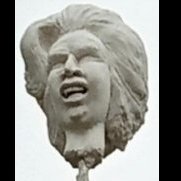Standard Chartered Bank (Thai) Top Economist Calls For Compromise
-
Recently Browsing 0 members
- No registered users viewing this page.
Announcements
-
Topics
-
-
Popular Contributors
-
-
Latest posts...
-
32
Report Putin and Trump in High-Stakes Alaska Summit Over Ukraine
Trump really seems to relish that taco moniker. -
5
Trump: Putin agrees with him US should not have mail-in voting
Clearly that can't be right as Trump says it's not so, and the man never lies! -
21
Dr Robert SULLIVAN testifies his lung capacity was slashed by half after taking Covid shots
There are plenty and I know a couple myself, multiple-jabbed. Among other things, medical school taught them to obey medical authorities without question. -
174
‘Putin clearly won’: Pundits say meeting was ‘bad for Americans’
He fails on every ceasefire he tries to end? What does that mean? -
36
Anybody seen this Dem Sandwich Slinger now X DOJ?...
You make light of the Tissy fit. They/ them was almost jumping out of his tighty light shorts, enraged with the left wing hate. They/ them represents the law ! “Specifically, DOJ employees, like all other civil servants, take an oath that includes a promise to support and defend the Constitution of the United States against all enemies, foreign and domestic, and to bear true faith and allegiance to the same. They also pledge to discharge their duties faithfully” Google ai My team won fair and square , all 7 swing states, 312 Electoral votes and the popular vote! All democratically. I dont expect the cultural marxist/ Socialist aka international left to understand this phenomenon! Most of the above are quite happy to live under A different set of ethics . Accept the election!People want to live by a standard centuries old!It aint perfect but its my & others, who voted for it! -
4
Padang Besar border 'bounce' report August 2025
So located in Bangkok and the best option you opted for was the one you outlined. Why didn't you fly any other option. eg Saigon. Are you visa exempt for Vietnam. Even if not you can obtain eVisa in hours
-
-
Popular in The Pub











Recommended Posts
Create an account or sign in to comment
You need to be a member in order to leave a comment
Create an account
Sign up for a new account in our community. It's easy!
Register a new accountSign in
Already have an account? Sign in here.
Sign In Now